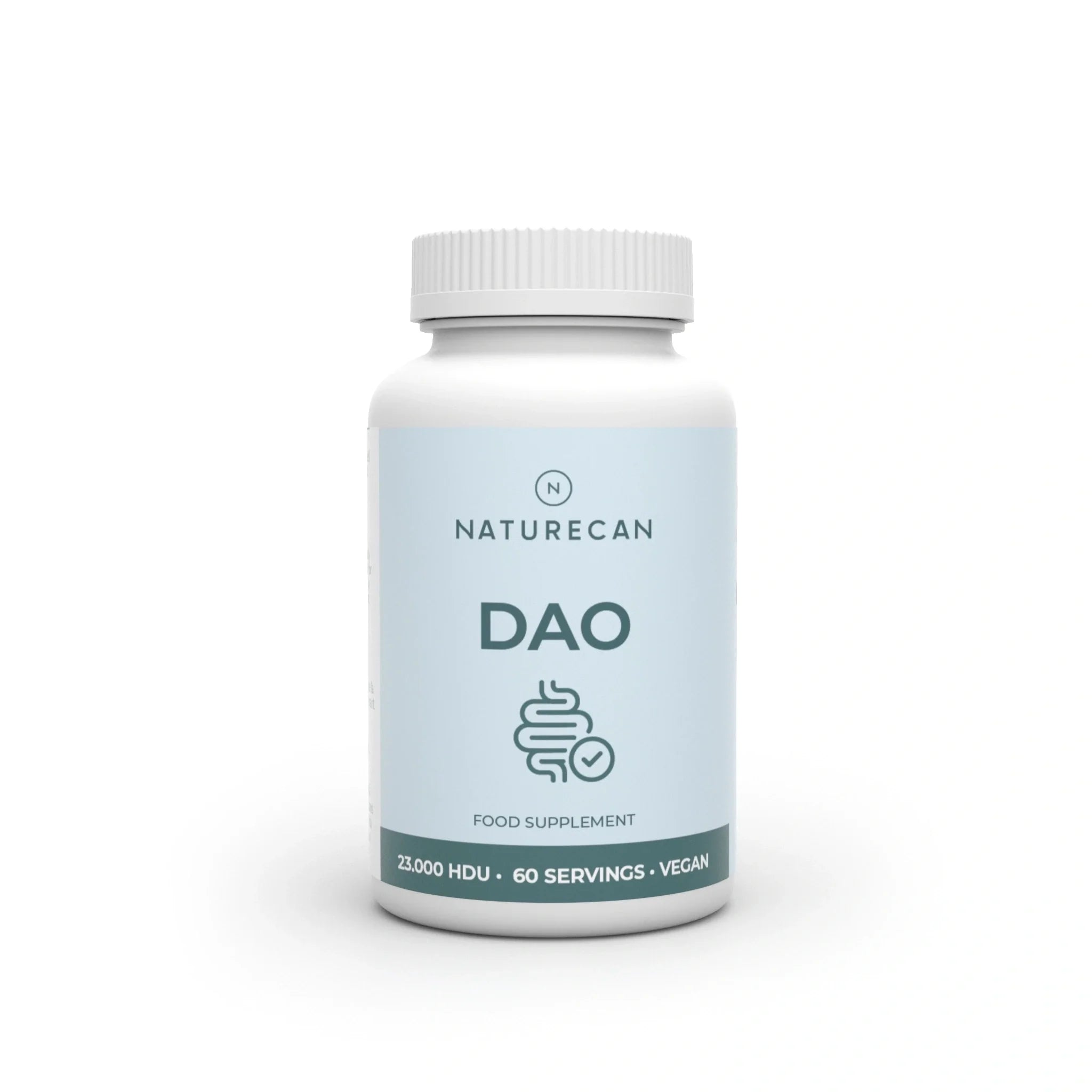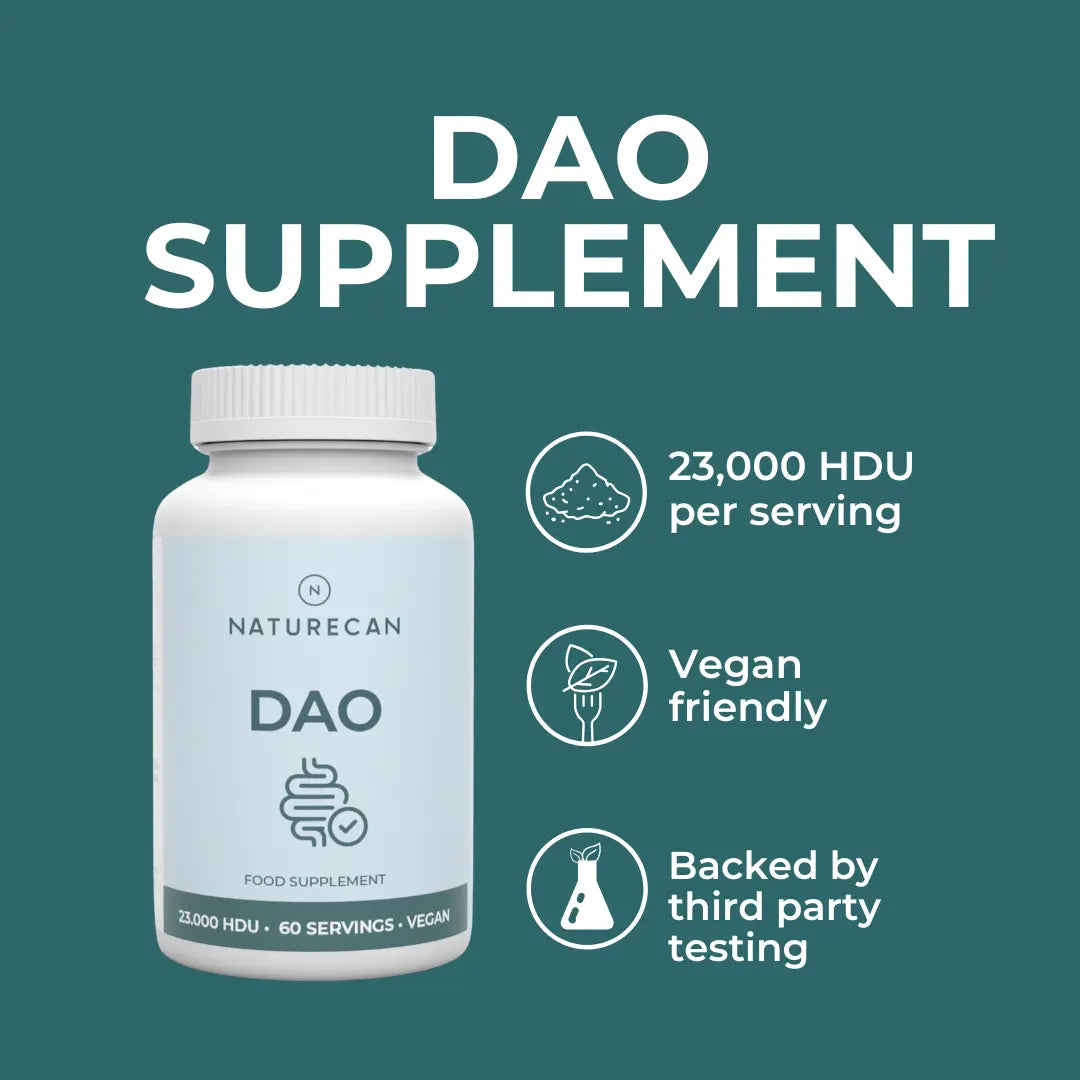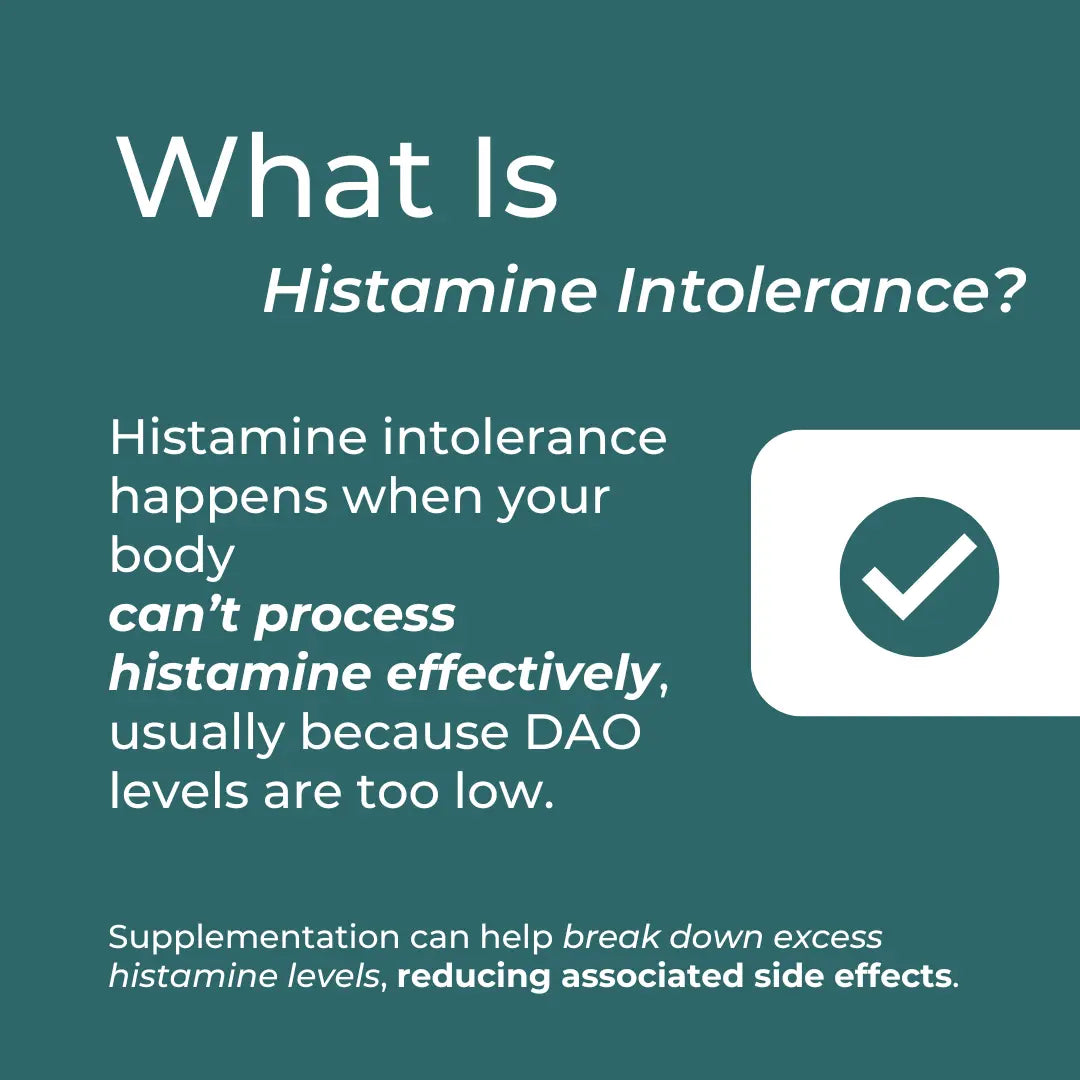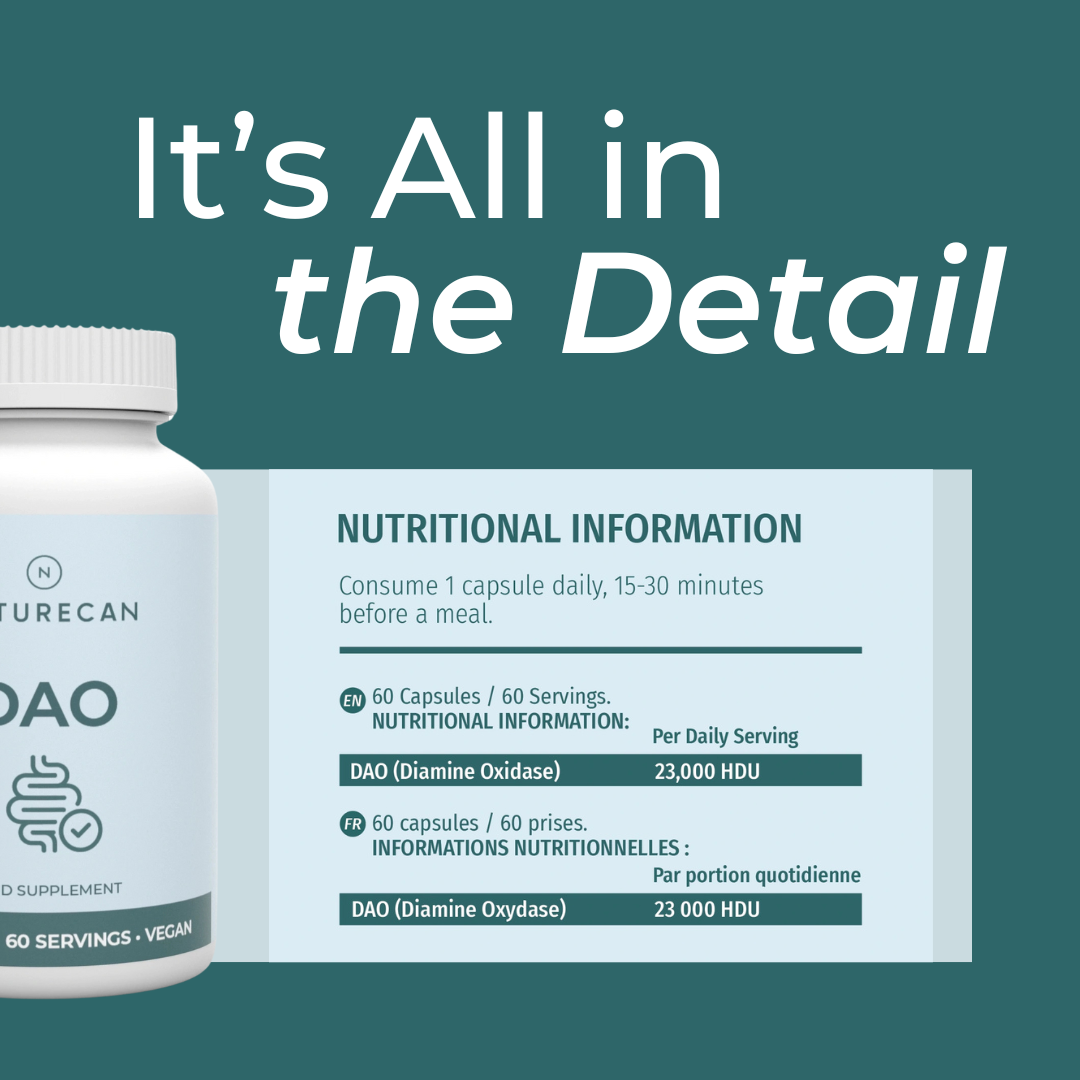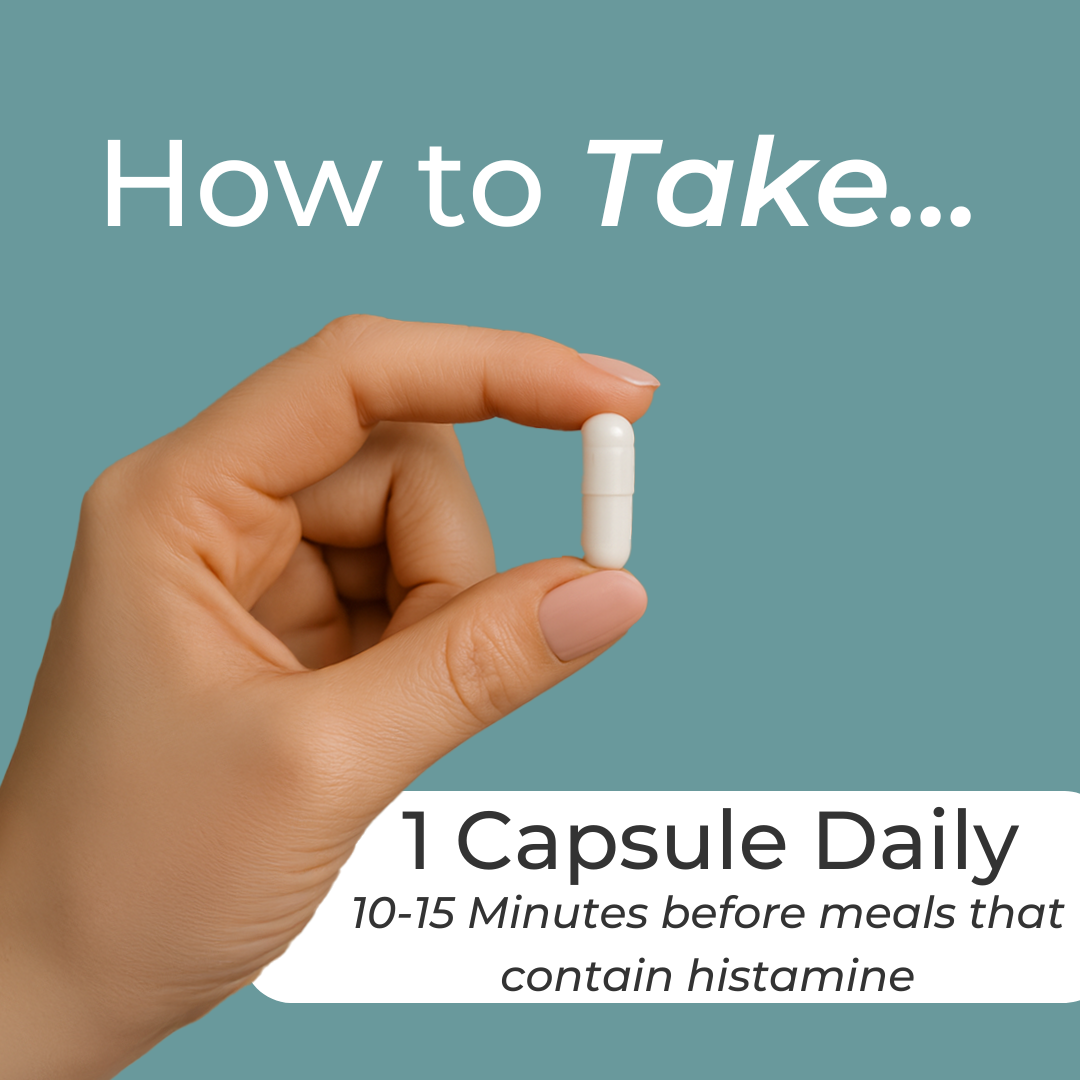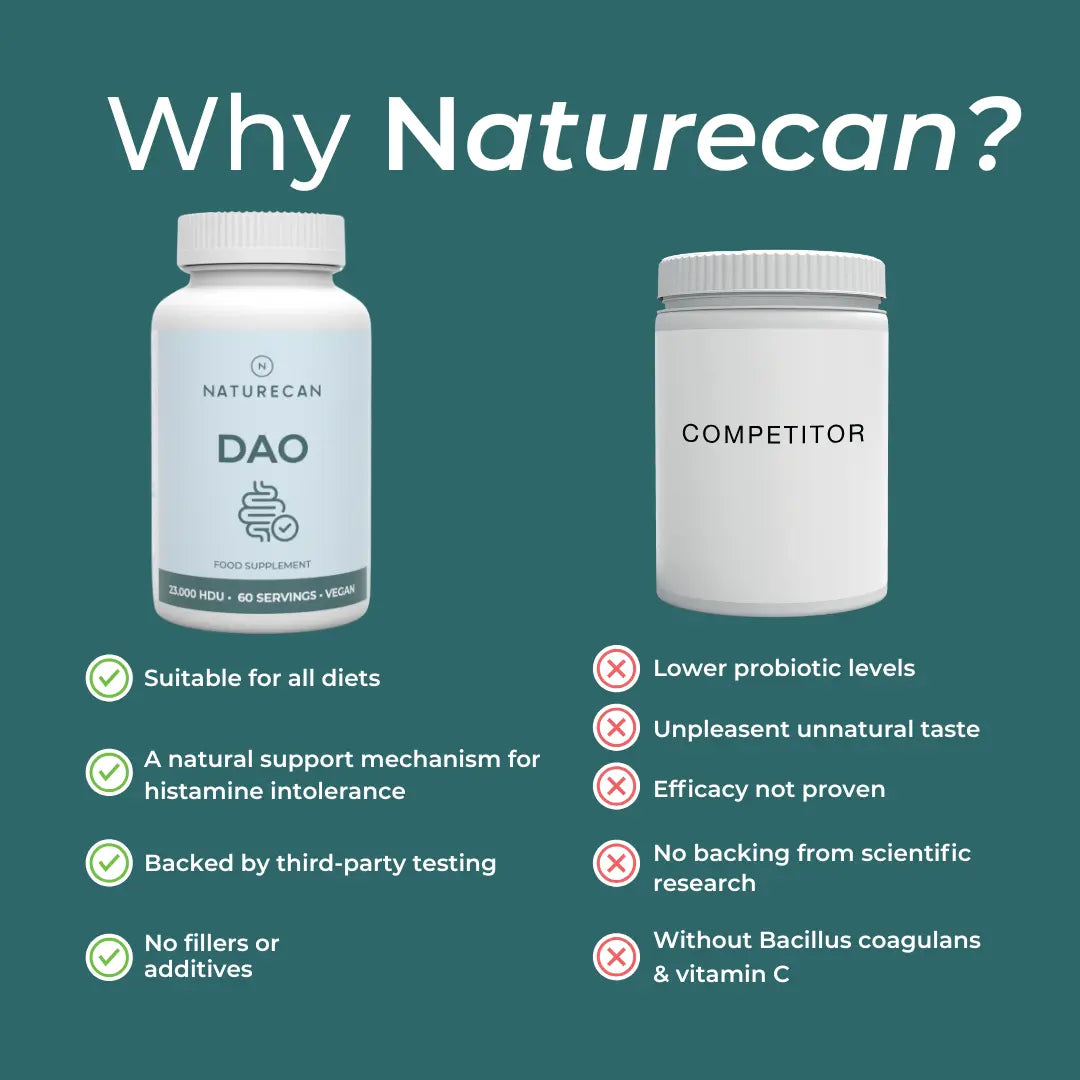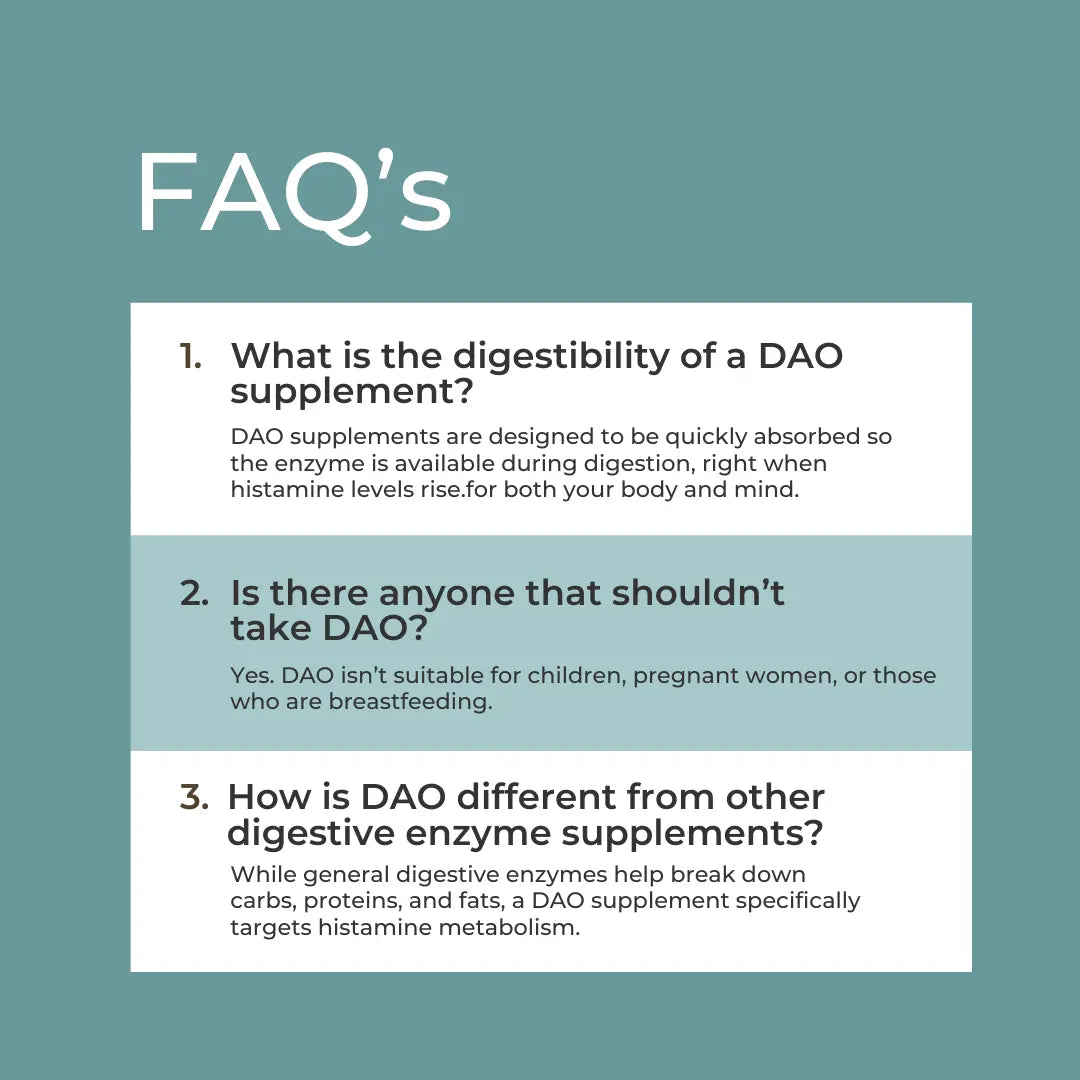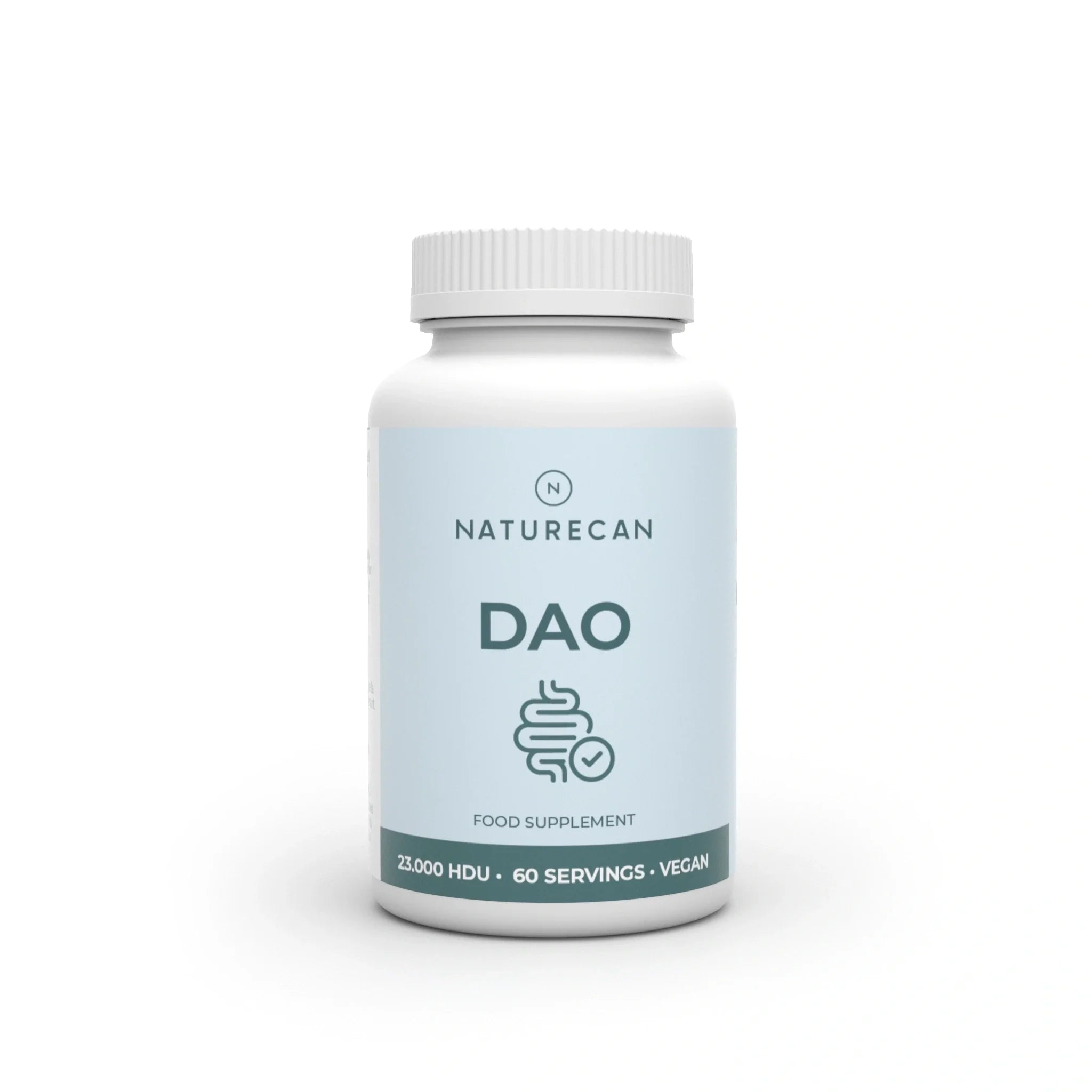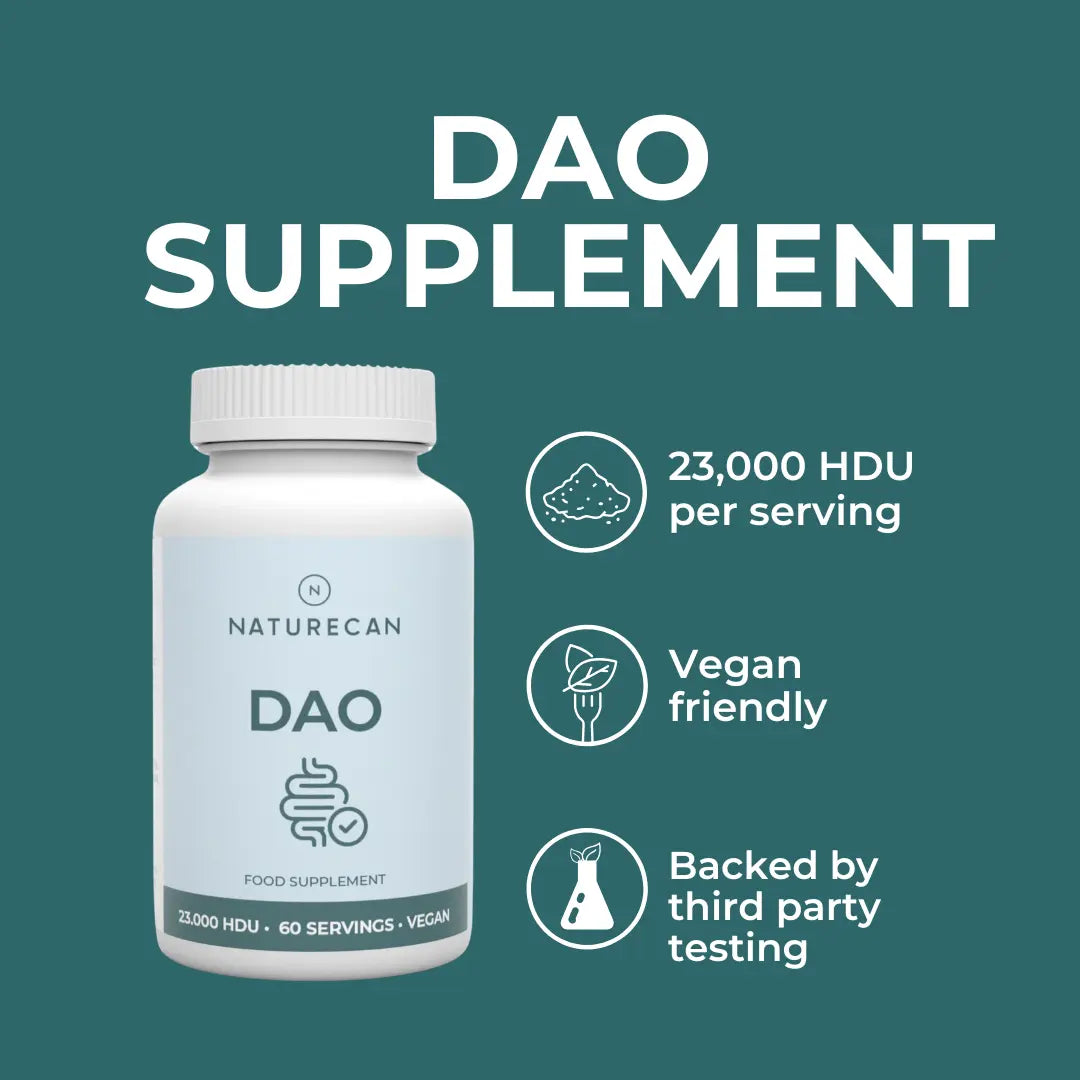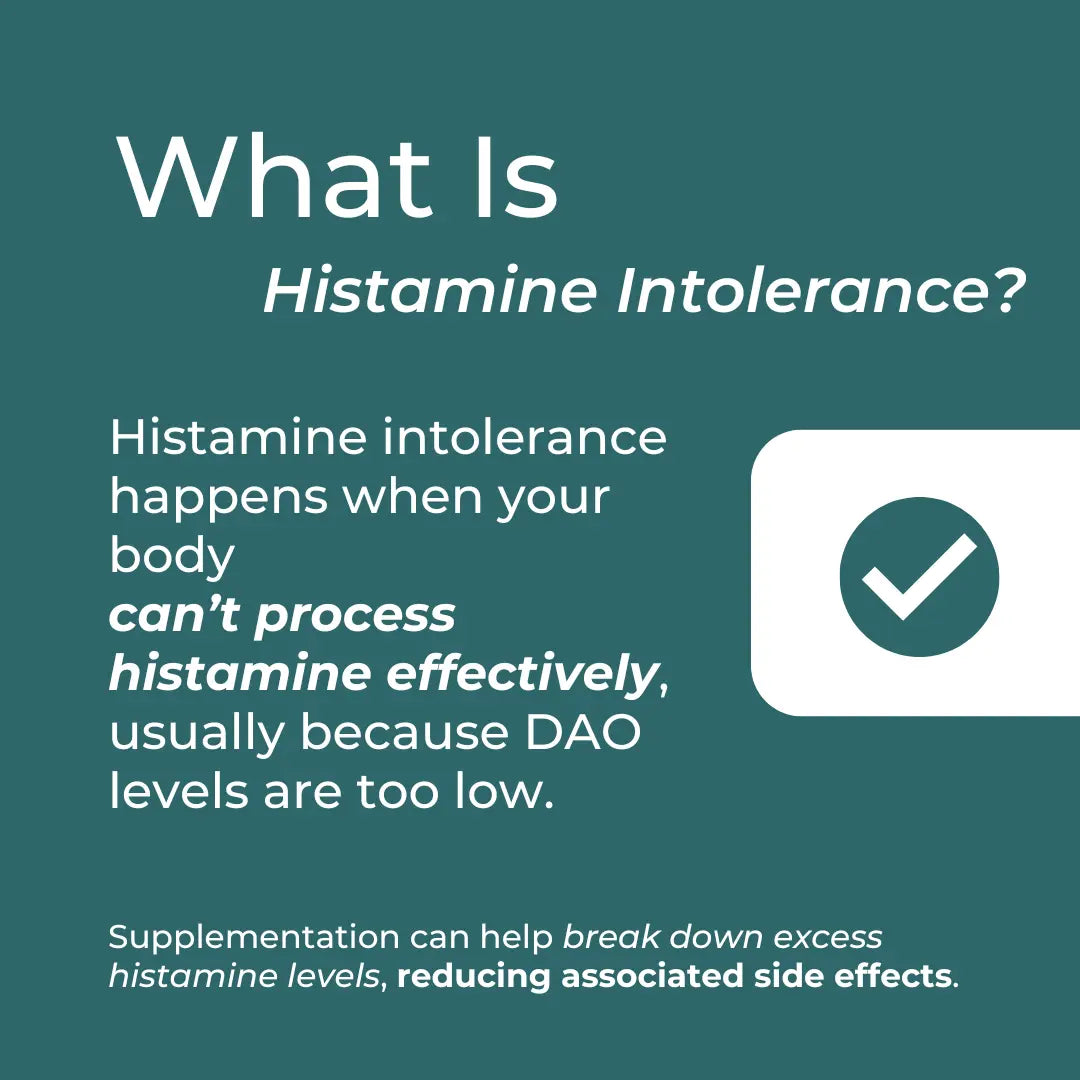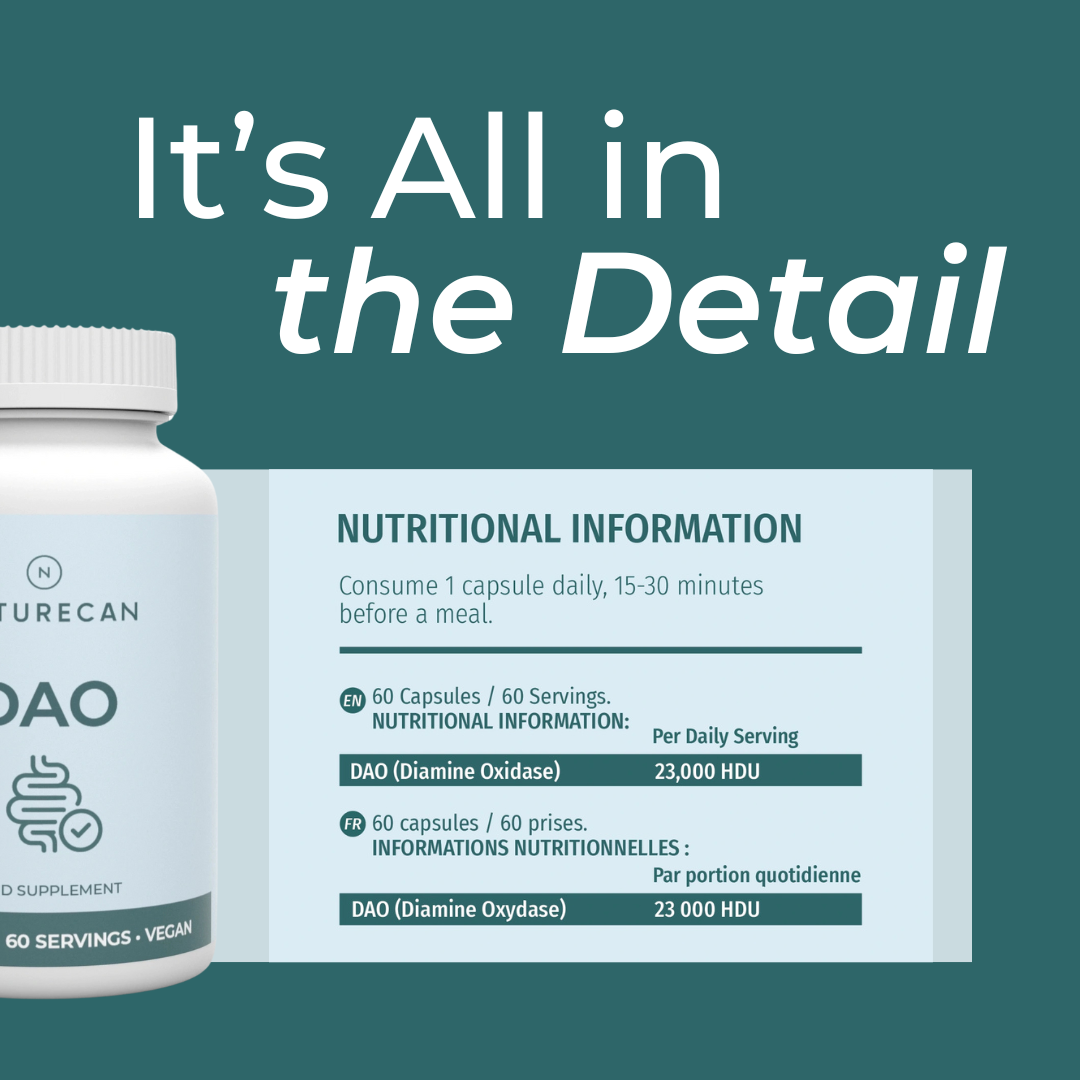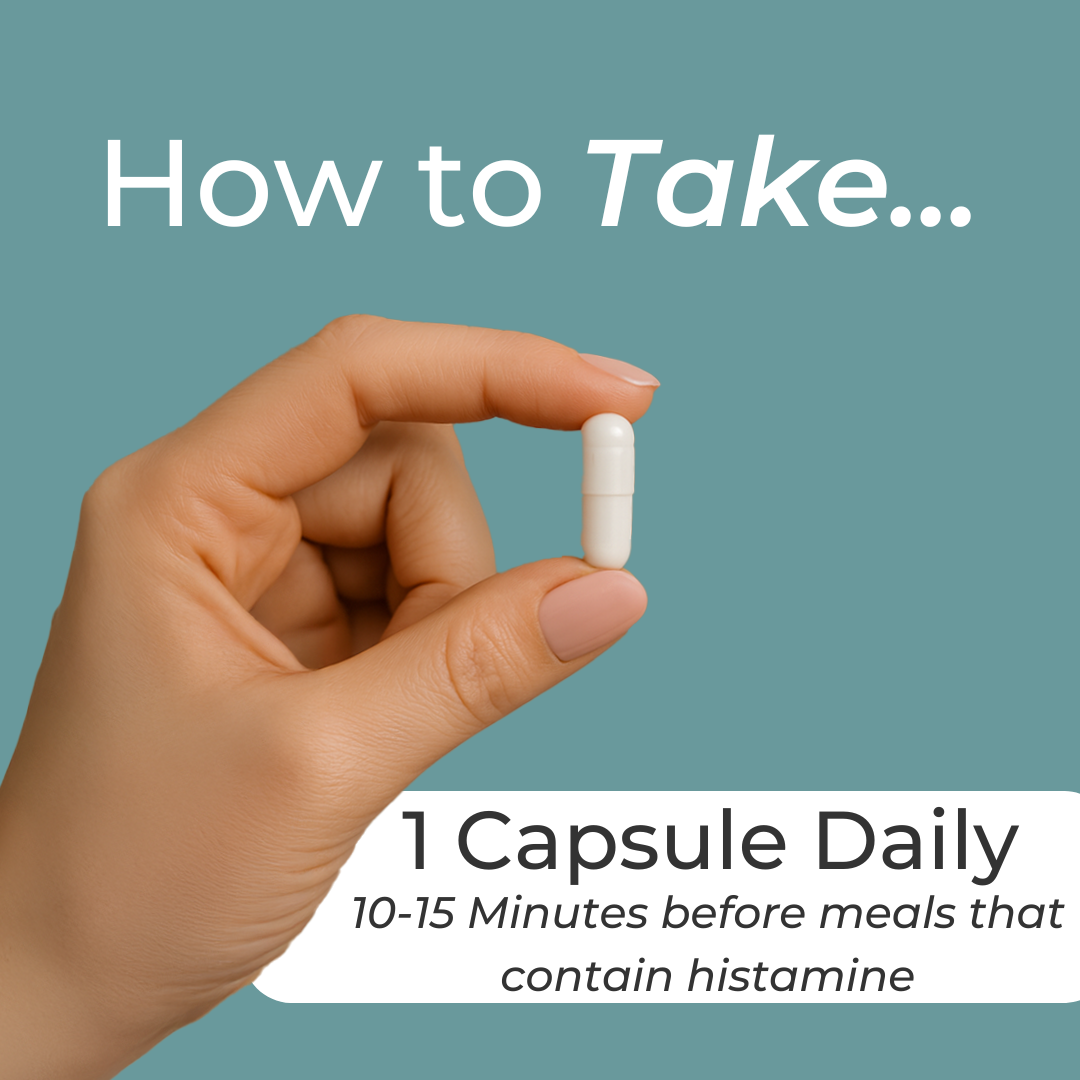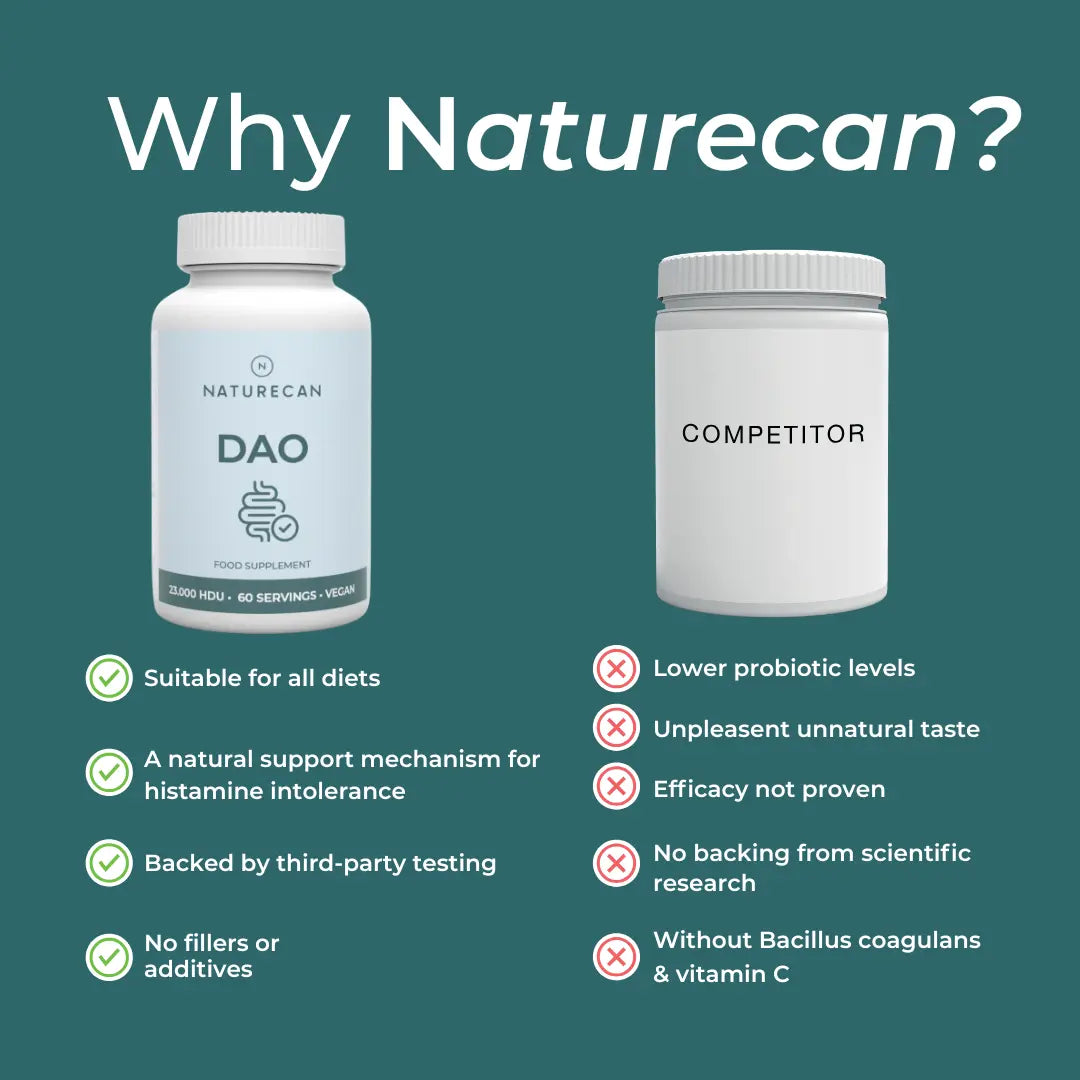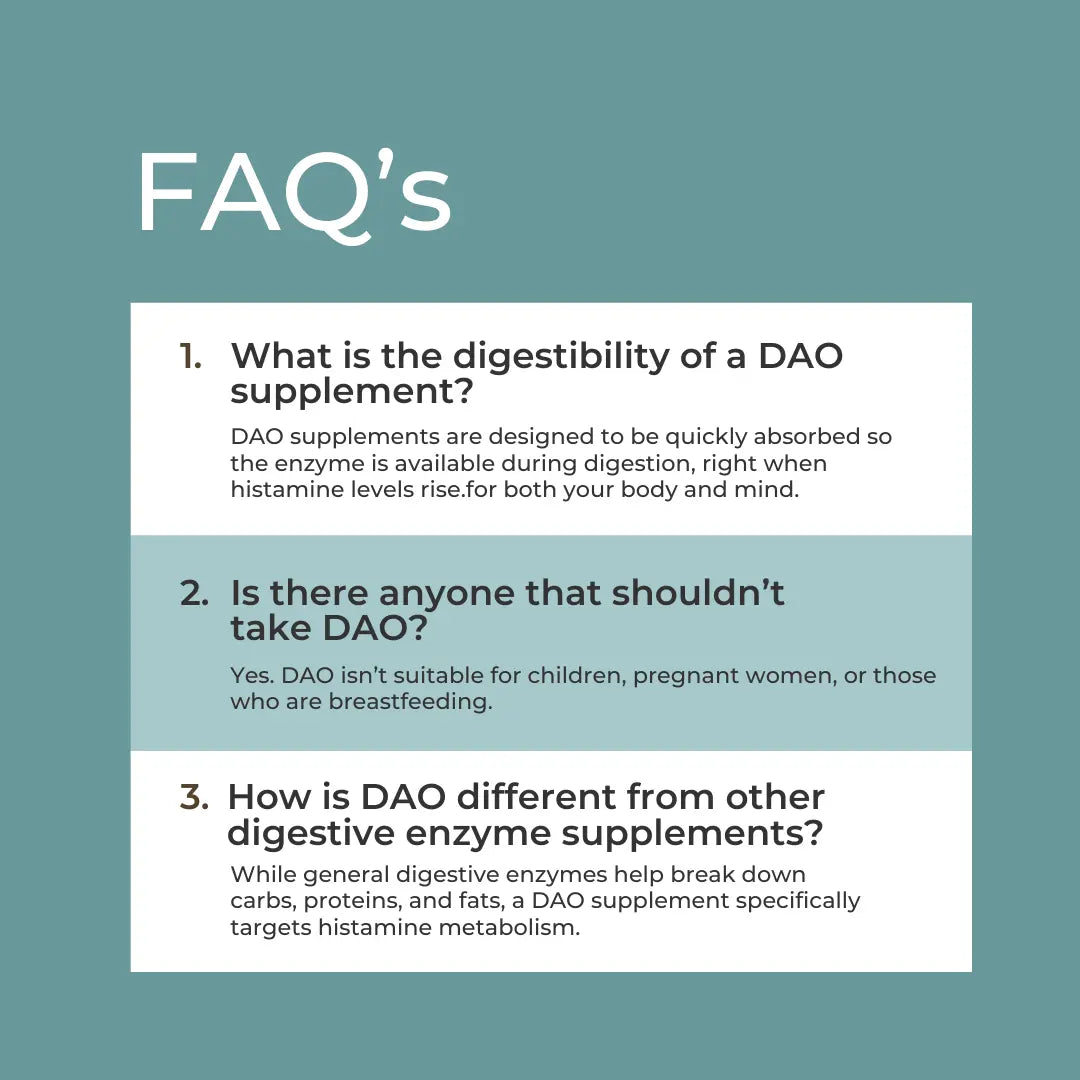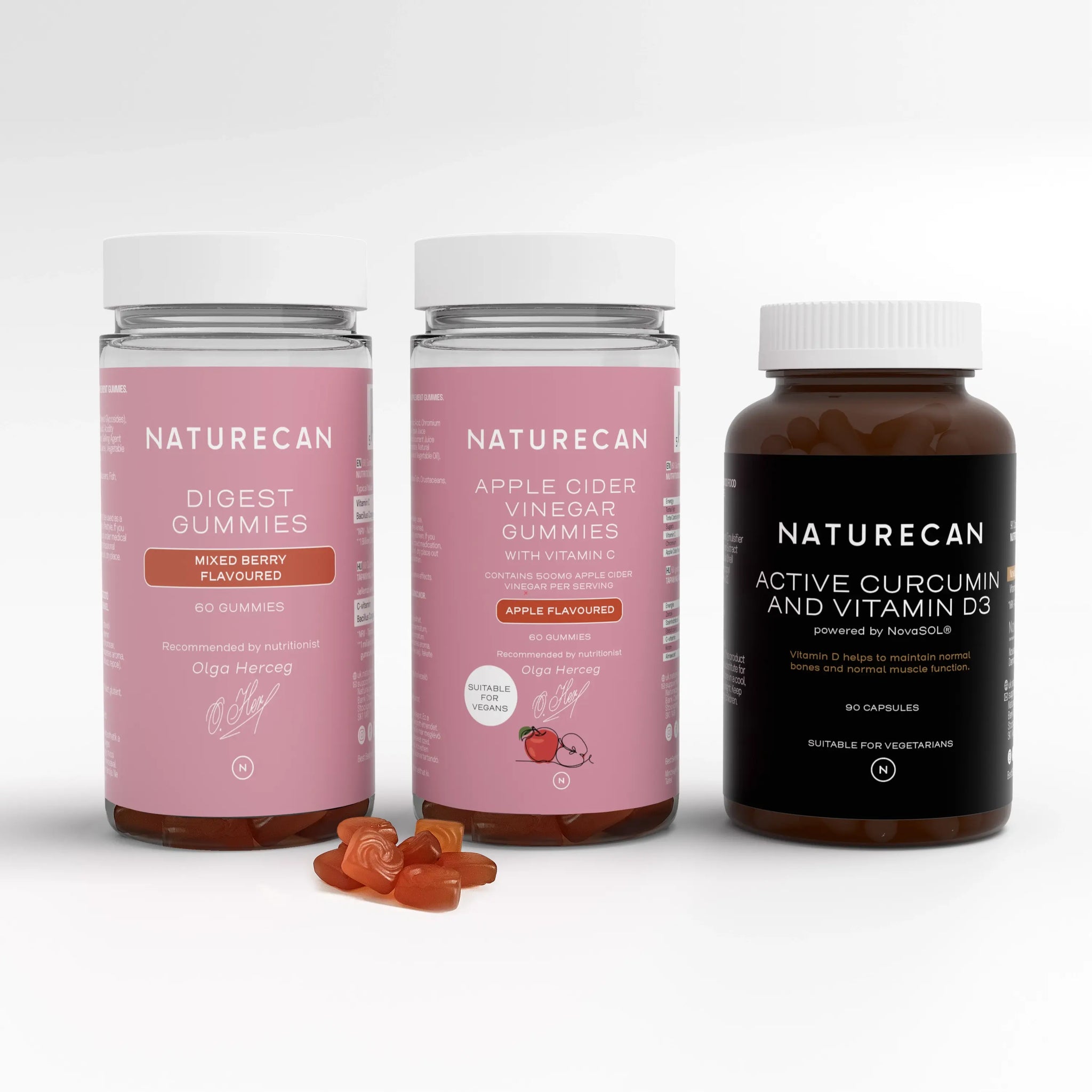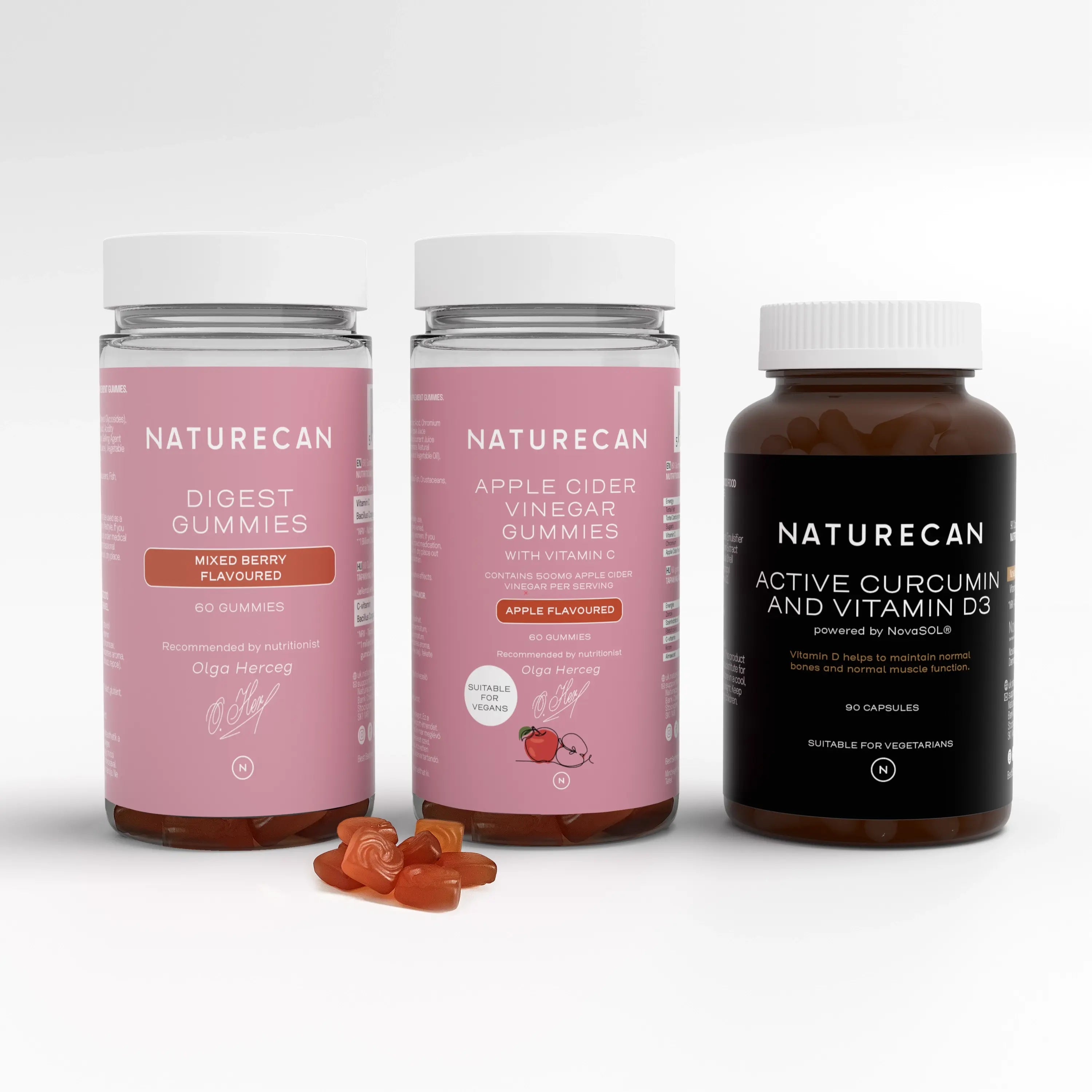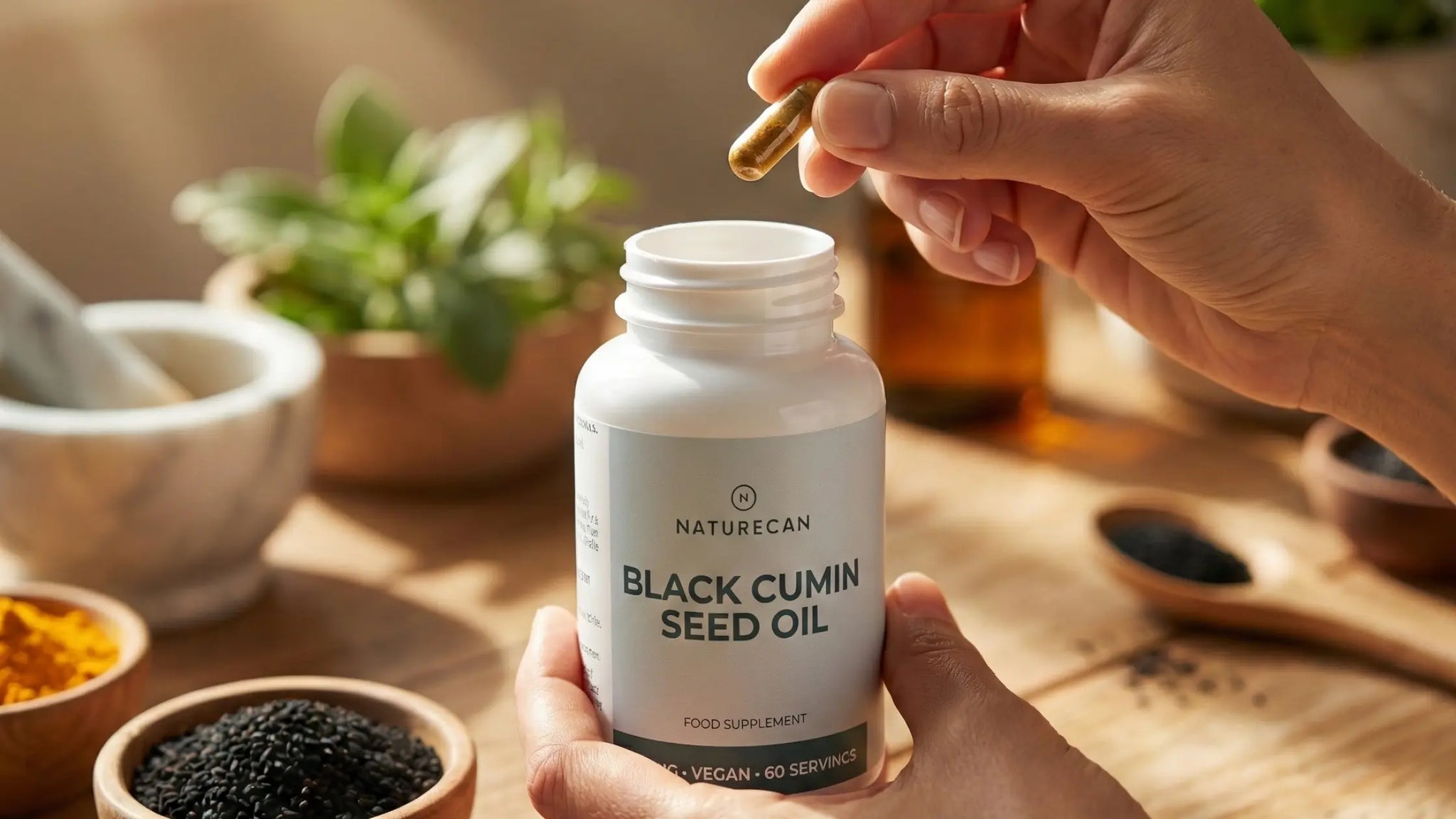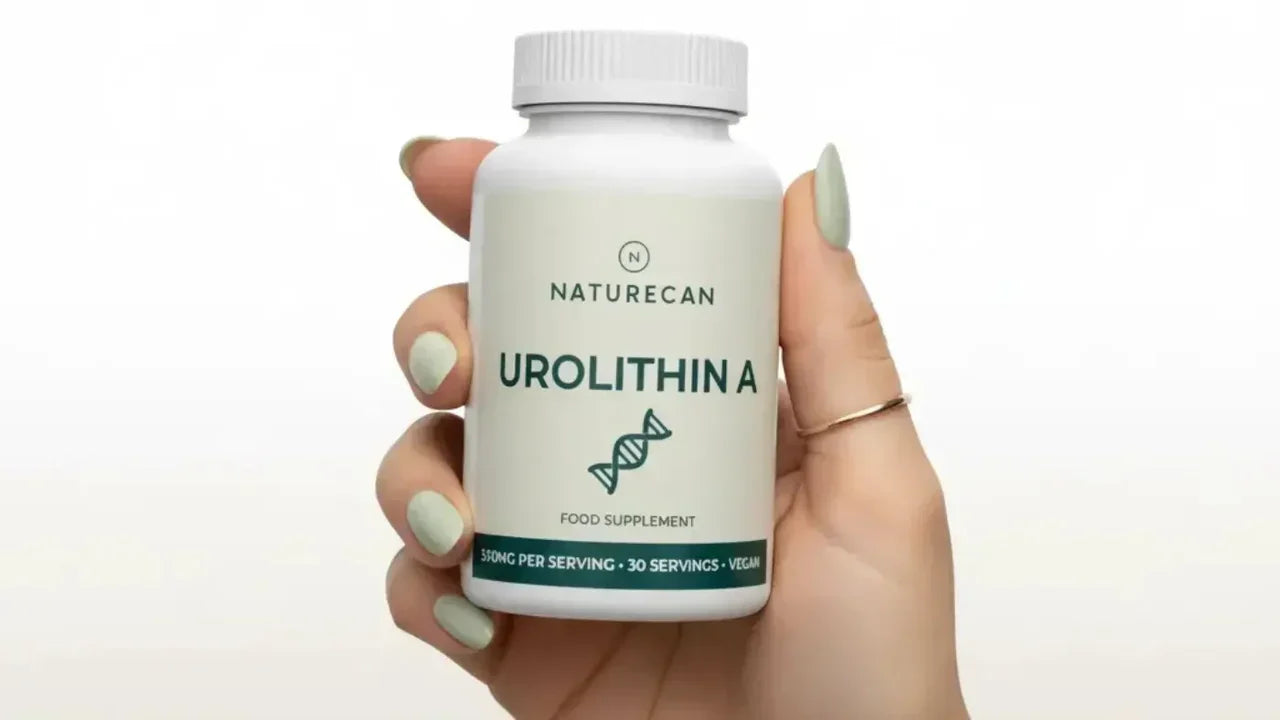Digestive Enzymes: What They Are And What They Do

Written by Jordan Caulfield & Reviewed by Paul Holmes.
In recent years, there's been a noticeable shift in the way we think about our health. We’re no longer just looking for quick fixes or myth diets.
More and more of us are turning inward, focusing on our gut health, and questioning how we can support our bodies from the inside out. Which is where digestive enzymes are taking the spotlight.
These naturally occurring proteins play a crucial role in breaking down the food we eat, allowing our bodies to absorb the necessary nutrients for efficient function.
With the rising interest in all things gut-related, digestive enzyme supplements are gaining a well-deserved place in the wellness spotlight. One in particular, DAO supplement, has gained attention for its role in processing histamine, a compound that, when left unchecked, can lead to uncomfortable symptoms.
In this guide, we’ll take a deep dive into what digestive enzymes are, how they work, their many benefits, and how DAO fits into the picture.
Agenda
What Are Digestive Enzymes?
Digestive enzymes are proteins that aid your body in breaking down food into smaller, more absorbable molecules. They’re naturally produced by different parts of your digestive system, including:
- Salivary glands (in your mouth)
- Stomach
- Pancreas
- Small intestine
Each enzyme has a specific job:
- Amylase breaks down carbohydrates
- Protease digests proteins
- Lipase handles fats
- Lactase processes lactose
- Diamine Oxidase (DAO) breaks down histamine
Because they work in harmony to make digestion more efficient, a lack of any one of these enzymes can throw your digestive system out of balance. Supplementing with enzymes, especially if your body is under-producing them, can help restore that balance and support overall gut health.

What Do Digestive Enzymes Do?
In the simplest terms, digestive enzymes make food easier to digest. But their impact goes beyond that.
When you eat, your digestive enzymes spring into action. For example:
- Amylase in your saliva starts breaking down carbs right in your mouth.
- Once food hits your stomach, protease and lipase continue the process by breaking down proteins and fats.
- By the time food reaches the small intestine, pancreatic enzymes and bile step in to finish the job.
This entire process helps turn the food you eat into absorbable nutrients, such as amino acids, fatty acids, and glucose.
These nutrients are then absorbed through the lining of your small intestine and carried via your bloodstream to the rest of your body.
Without quality enzyme activity, you could experience bloating, flatulence, indigestion, or nutrient deficiencies, even if you’re following a healthy diet.
How Do I Know If I Have Healthy Digestive Enzymes?
Your body usually gives you a few clues when your digestive enzymes are functioning well and equally, when they're not.
If you're digesting your meals comfortably, have regular bowel movements, feel energised after eating, and don't suffer from common digestive complaints like bloating, gas, or indigestion, it's a good sign that your enzymes are doing their job.
Here are a few indicators you likely have healthy enzyme activity:
- You feel satisfied and energised after meals
- You have regular and easy bowel movements
- You're free from frequent bloating or gas
- Your skin is clear and balanced
- You’re able to eat a variety of foods without discomfort
On the other hand, if meals often leave you feeling sluggish, uncomfortable, or gassy, or if you notice undigested food in your stool, it could be a sign your enzyme levels are off. In those cases, a digestive enzyme supplement may offer some much-needed support.

DAO: What The Science Says
Scientific research into DAO shows some promising benefits, particularly for those suffering with histamine intolerance and other related symptoms. While the research is still undergoing and constantly developing, several credible studies offer valuable insights.
What Is DAO?
DAO (Diamine Oxidase) is a lesser-known but incredibly important digestive enzyme. It plays a specific role in breaking down histamine, a compound found in many foods and also produced naturally by your body.
Histamine plays a role in immune responses, digestion, and even mental health. But when there’s too much of it, or when your body struggles to break it down properly, it can progress to a condition called histamine intolerance.
DAO has been found in clinical trials to relieve the symptoms caused by histamine intolerance [1], making it a promising addition to daily routines for those suffering with uncomfortable symptoms.
How DAO Helps With Histamine in the Body
DAO is produced in the small intestine, and its primary job is to degrade excess histamine, especially the kind that comes from food.
Histamine-rich foods include:
- Aged cheeses
- Cured meats
- Alcohol
- Fermented foods
- Certain fish like tuna and mackerel
When DAO levels are low, histamine builds up in the bloodstream. This can lead to symptoms such as:
- Headaches or migraines
- Nasal congestion
- Bloating and stomach pain
- Skin rashes or flushing
- Fatigue
Taking a DAO supplement may help reduce these symptoms by giving your body the extra support it needs to process histamine more efficiently.

DAO Supplement by Naturecan
Naturecan’s DAO supplement is crafted for purity, with vegan and clean-label ingredients, and are third-party tested for quality.
Each batch is lab-verified, ensuring you get a premium supplement that fits seamlessly into a science-backed longevity stack.
- Vegan friendly
- High-strength
- Measured daily reccomended dose for ease
- Great for on the go
- Science-backed formula
8 Benefits of Digestive Enzymes
Digestive enzymes don’t just improve digestion. They play a role in many aspects of health and wellbeing.
Such as:
1. Better Nutrient Absorption
Enzymes help your body fully break down food into the smallest possible particles, making it easier to absorb vitamins, minerals, and other nutrients.
2. Reduced Bloating and Discomfort
By helping food move through your digestive system more efficiently, enzymes can ease bloating, gas, and indigestion, particularly after large or heavy meals.
3. Skin Health Improvements
Gut health and skin health are closely linked. When your digestion is optimised, it can help reduce skin inflammation, irritation, and breakouts.
4. Natural and Gentle on the Body
Digestive enzymes work with your body’s natural processes, making them a gentle yet effective solution for many digestive issues.
5. Potential Support for Weight Management
Efficient digestion may help balance hunger hormones, improve metabolism, and support your efforts to maintain a healthy weight.
6. Improved Energy Levels
When digestion is efficient, your body gets the energy it needs faster. You’re likely to feel less sluggish and more energised after meals.
7. Quicker Recovery After Meals
If heavy meals leave you feeling wiped out, enzymes can help reduce that post-meal fatigue by supporting faster digestion.
8. Support for Food Sensitivities
Enzymes like lactase (for lactose) and DAO (for histamine) could help individuals with symptoms with dietary sensitivities and gastrointestinal diseases, such as lactose intolerance. [1]
Probiotics vs Digestive Enzymes
While both support gut health, they do so in very different ways. Here’s a quick comparison:
| Feature | Digestive Enzymes | Probiotics |
|---|---|---|
| What they are | Proteins that break down food | Live bacteria that support gut flora |
| Function | Aid digestion and nutrient absorption | Maintain a healthy gut microbiome |
| Best time to take | With meals | Daily, often with or without food |
| Key examples | DAO, lactase, protease | Lactobacillus, Bifidobacterium |
Ideally, they should be used together to promote a healthy, balanced gut.

How To Improve Gut Health
Discover how to improve your gut health and balance your gut microbiome.
Read MoreImprove Your Longevity Journey With Our Range
What to Take Alongside Enzyme Supplements
Digestive enzyme supplements work even better when combined with other gut-friendly nutrients. Consider pairing them with:
- Probiotics – to maintain healthy gut bacteria
- Vitamin C – for immune support and antioxidant protection
- Vitamin D3 & K2 – for immune, bone, and cardiovascular health
- Fibre – to support digestion and feed beneficial bacteria
Explore our Gut Health Collection for all of the gut health supplements you need in one place.
Are There Any Side Effects?
Digestive enzymes are generally safe for most people. However, some may experience:
- Mild stomach cramps
- Nausea
- Diarrhoea
- Allergic reactions (rare)
To reduce the risk of side effects:
- Start with a low dose
- Take them with meals
- Speak to a healthcare provider if you’re on medication

Signs You Are Lacking in Digestive Enzymes
Wondering if you might benefit from a digestive enzyme supplement? Here are some common signs:
- Bloating or gas after eating
- Fatigue after meals
- Nutritional deficiencies despite a balanced diet
- Persistent skin issues
If these sound familiar, enzymes, especially DAO if histamine is involved, could make a noticeable difference.

Final Thoughts
From improving digestion and nutrient absorption to supporting skin health and energy levels, digestive enzymes play a crucial role in overall wellbeing.
If you experience signs of poor digestion or symptoms linked to histamine intolerance, a DAO supplement could be the perfect addition to your daily wellness routine.
Naturecan is committed to helping you build a lifestyle that supports long-term health in the most natural way possible.
Our Digest Gummies and gut health products are designed to make daily enzyme support simple and effective.
FAQS About Digestive Enzymes
When is the best time to take digestive enzymes?
Right before or during a meal is ideal, as this is when your body starts to digest food.
Can digestive enzymes be taken alongside medication?
Yes, but it’s important to consult your GP or pharmacist first.

Reviewed by Paul Holmes
Director of Science and Innovation at Naturecan
Testing for large pharmaceutical & tobacco companies, Paul has built a wealth of scientific and regulatory knowledge, working on regulatory submissions to bodies such as the FDA and the MHRA.
He holds a BSc in Medicinal and Biological Chemistry and sits on the UKAS CBD Food Product Approval Expert Group.






